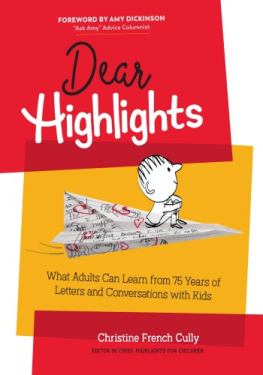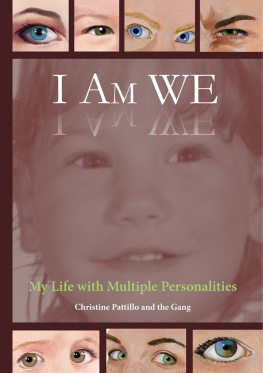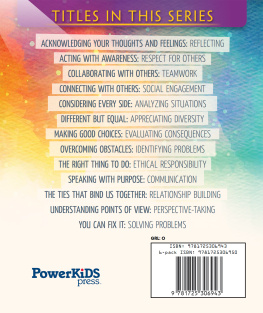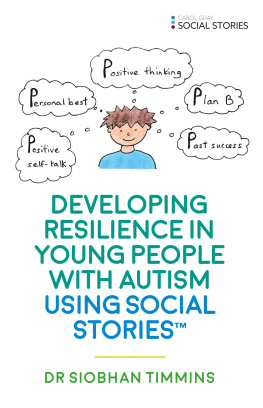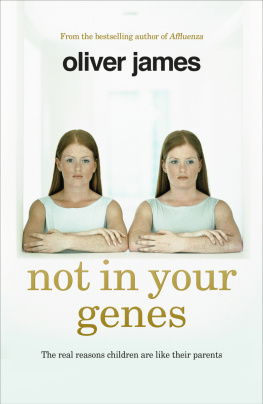of related interest
Supporting Children and Families
Lessons from Sure Start for Evidence-Based Practice in Health, Social Care and Education
Edited by Justine Schneider, Mark Avis and Paul Leighton
ISBN 978 1 84310 506 0
eISBN 978 1 84642 741 1
Young Childrens Rights
Exploring Beliefs, Principles and Practice
2nd Edition
Priscilla Alderson
ISBN 978 1 84310 599 2
eISBN 978 1 84642 774 9
Children in Charge series
Children Taken Seriously
In Theory, Policy and Practice
Edited by Jan Mason and Toby Fattore
Foreword by Mary John
ISBN 978 1 84310 250 2
eISBN 978 1 84642 099 3
Children in Charge series
Childrens Rights and Power
Charging Up for a New Century
Mary John
ISBN 978 1 85302 659 1 (Paperback)
ISBN 978 1 85302 658 4 (Hardback)
eISBN 978 1 84642 027 6
Children in Charge series
Disabled Children and the Law
Research and Good Practice
2nd edition
Janet Read, Luke Clements and David Ruebain
ISBN 978 1 84310 280 9
eISBN 978 1 84642 488 5
Children with Mental Disorder and the Law
A Guide to Law and Practice
Anthony Harbour
ISBN 978 1 84310 576 3
eISBN 978 1 84642 800 5
Speaking Up
A Plain Text Guide to Advocacy 4-volume set
John Tufail and Kate Lyon
ISBN 978 1 84310 474 2
eISBN 978 1 84642 601 8
See You in Court
A Social Workers Guide to Presenting Evidence in Care Proceedings
Lynn Davis
ISBN 978 1 84310 547 3
eISBN 978 0 85700 925 8
Developing Advocacy for Children and Young People
Current Issues in Research, Policy and Practice
Edited by Christine M. Oliver and Jane Dalrymple
Foreword by Cherie Booth QC
Jessica Kingsley Publishers
London and Philadelphia
First published in 2008
by Jessica Kingsley Publishers
73 Collier Street
London N1 9BE, UK
and
400 Market Street, Suite 400
Philadelphia, PA 19106, USA
www.jkp.com
Copyright Jessica Kingsley Publishers 2008
Foreword copyright Cherie Booth QC 2008
The names of all persons quoted in this book have been changed to protect their identity.
All rights reserved. No part of this publication may be reproduced in any material form (including photocopying or storing it in any medium by electronic means and whether or not transiently or incidentally to some other use of this publication) without the written permission of the copyright owner except in accordance with the provisions of the Copyright, Designs and Patents Act 1988 or under the terms of a licence issued by the Copyright Licensing Agency Ltd, Saffron House, 610 Kirby Street, London EC1N 8TS. Applications for the copyright owners written permission to reproduce any part of this publication should be addressed to the publisher.
Warning: The doing of an unauthorised act in relation to a copyright work may result in both a civil claim for damages and criminal prosecution.
Library of Congress Cataloging in Publication Data
Developing advocacy for children and young people : current issues in research, policy and practice / edited by Christine M. Oliver and Jane Dalrymple.
p. cm.
ISBN 978-1-84310-596-1 (pb : alk. paper) 1. Children--Services for. 2. Legal assistance to children. 3. Child welfare. 4. Childrens rights. 5. Children--Legal status, laws, etc. 6. Social advocacy. I. Oliver, Christine M. II. Dalrymple, Jane, 1951-
HV713.D48 2008
362.7--dc22
2007040317
British Library Cataloguing in Publication Data
A CIP catalogue record for this book is available from the British Library
ISBN 978 1 84310 596 1
eISBN 978 1 84642 789 3
Foreword
Id like to start with a question why is it so important to listen to children and make sure they are involved in the decisions that impact on their lives? Many people, after all, would argue that it is adults responsibility to make decisions in the best interests of children and that children themselves lack the life experience and knowledge to do this.
And, of course, adults must have a large input. But I would argue that it is in all our interests to make sure that we dont ignore children in these processes and indeed that we involve children as much as possible.
This is not simply because it is their interests, priorities, concerns and hopes that are being decided on and if we are to get these decisions right it makes sense to know their opinion. We take this for granted if decisions are being made about ourselves. It is also because every society hopes and expects that its children will grow up to be capable and responsible citizens who contribute to the well-being of their communities. This development is not something, however, that occurs overnight, when the child suddenly reaches the age of majority. As with other aspects of growth and development, it is a gradual process that must be nurtured.
Bringing children up in a culture where they are consulted, involved and listened to and where respect is a two way process can only be of benefit to children, adults and society as a whole. Children make up nearly 25% of the population in the UK and are the primary users of many of our services schools, health and leisure as well as our social services. Encouraging early participation gives children a taste for citizenship; it encourages fairness and tolerance; engenders respect for others; and thus reduces the danger of alienation in later years.
The benefits of involvement and participation for children and young people are well researched. They learn more about themselves and others; they learn to respect others rights; they start to develop the capacity to exercise social responsibility; they develop interpersonal and practical skills and acquire new knowledge and skills. Perhaps most importantly they gain confidence in dealing with other people both adults and children and are able engage in reasonable debate.
As a human rights lawyer, I would also be a little remiss if I did not mention that a childs right to be listened to and involved is required in both international and domestic policy. Article 12 of the United Nations Convention on the Rights of the Child enshrines the right of children to have their views and opinions listened to and taken into account. In domestic policy the 1989 and 2004 Children Acts and the Every Child and Youth Matters agendas stress the importance of involving children and young people and places duties on agencies to ensure this happens.
But enshrining this right in law is not enough. Many children will need support to enable their voices to be heard disabled children, younger children, those in care or custody, and those whose own parents are unable to act as champions for them will need additional support and help.
How important this is can be seen by looking at the position of children in care. The poor outcomes for this group are well documented and highlighted in the recent Green Paper Care Matters: Transforming the Lives of Children in Care. The achievement gap between them and other children is growing and the outcomes for them are even poorer than for those with similar backgrounds and characteristics who do not come into care.
When children come into care, their relationship with all the other systems and services they are involved with, such as schools and health services, is changed. They are no longer mediated by parents or guardians, so it is essential that they have access to people who can help them be heard and involved.



